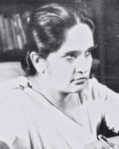| |||||||||||||||||||||||||||||||||||||
151 seats in the House of Representatives of Ceylon 76 seats were needed for a majority | |||||||||||||||||||||||||||||||||||||
|---|---|---|---|---|---|---|---|---|---|---|---|---|---|---|---|---|---|---|---|---|---|---|---|---|---|---|---|---|---|---|---|---|---|---|---|---|---|
| |||||||||||||||||||||||||||||||||||||
| |||||||||||||||||||||||||||||||||||||
Snap parliamentary elections were held in Ceylon in July 1960.
Background
The March 1960 election had left neither of Ceylon's two major parties with a majority, so another election was inevitable.
The Sri Lanka Freedom Party, which had been in disarray since the murder of its leader S.W.R.D. Bandaranaike the previous year, settled on his widow, Sirimavo, as its new leader. She pledged to continue her husband's policies, notably the Sinhala Only Act, and to proceed with repatriation of the estate Tamils to India. However, she promised to reach a compromise with the Federal Party.
The United National Party, led by Dudley Senanayake, refused to compromise with the Federal Party. It also differed with the SLFP over economic policy. The SLFP called for a socialist program of nationalization of both private enterprises and religious schools; the UNP preferred to leave both in private hands.
Results
The SLFP obtained a bare majority, despite getting a lower share of the popular vote than the UNP, and Mrs. Bandaranaike became prime minister. This was the first time in history a woman led her party to victory in a general election and thus becoming prime minister.
| Party | Votes | % | Seats | |
|---|---|---|---|---|
| United National Party | 1,144,166 | 37.19 | 30 | |
| Sri Lanka Freedom Party | 1,022,171 | 33.22 | 75 | |
| Lanka Sama Samaja Party | 224,995 | 7.31 | 12 | |
| Illankai Tamil Arasu Kachchi | 213,733 | 6.95 | 16 | |
| Mahajana Eksath Peramuna | 106,816 | 3.47 | 3 | |
| Communist Party of Ceylon | 90,219 | 2.93 | 4 | |
| All Ceylon Tamil Congress | 46,804 | 1.52 | 1 | |
| Lanka Democratic Party | 30,207 | 0.98 | 2 | |
| National Liberation Front | 14,030 | 0.46 | 2 | |
| Others | 183,728 | 5.97 | 6 | |
| Total | 3,076,869 | 100.00 | 151 | |
| Registered voters/turnout | 3,724,507 | 75.9 | ||
| Source: Nohlen et al. | ||||
References
- Dieter Nohlen, Florian Grotz & Christof Hartmann (2001) Elections in Asia: A data handbook, Volume I, pp710–722 ISBN 0-19-924958-X
- "Result of Parliamentary General Election 1960-07-20" (PDF). Department of Elections, Sri Lanka. Archived from the original (PDF) on 2015-09-24.
- "1960 July General Election Results". LankaNewspapers.com. Archived from the original on 2012-03-10.
- "Table 35 Parliament Election (1960 July)". Sri Lanka Statistics. 10 February 2009.
- Rajasingham, K. T. (1 December 2001). "Chapter 17: Assassination of Bandaranaike". Sri Lanka: The Untold Story. Asia Times. Archived from the original on 20 December 2001.
- Rajasingham, K. T. (8 December 2001). "Chapter 18: Srimavo - weeping arrogance". Sri Lanka: The Untold Story. Asia Times. Archived from the original on 17 December 2001.
- DeVotta, Neil (2004). Blowback: Linguistic Nationalism, Institutional Decay, and Ethnic Conflict in Sri Lanka. Stanford University Press. p. 123. ISBN 9780804749244.
| Presidential | |
|---|---|
| Parliamentary | |
| Provincial | |
| Local | |
| Referendums | |


